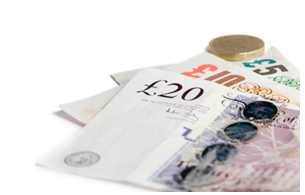As a self-employed professional, you have an unprecedented amount of control over your finances. You can dictate your working hours, adjust your rates as you like and take on whatever jobs you feel like. You also have a huge responsibility for the accountancy of your business, and have to worry about things like payment methods that might be alien concerns. At the end of the day, as a contractor, you’re in charge, so it’s up to you to keep your ship afloat. Until you’re established, that can be difficult, and that’s why we recommend budgeting.

Actually, budgeting is a good habit throughout life, but it’s perhaps especially vital if you’re self-employed. There are many ways to be savvy in this area, and you can find some of the best below:
Establish Projected Income
The basics of any sort of budgeting require that you project your monthly income, as this will allow you to create a rough budget plan. Even if your income varies – as it may well do when contracting – you can divide your previous freelancing income by the number of months you’ve been in business to get an idea of what sort of figures you’ll be looking at. Trust us; it’ll help you in the long run.
Divide Business and Personal
When working for yourself, your business expenses and your personal expenses can become blurred, but we recommend keeping them distinct. Keeping your finances organised and separated in such a manner will further assist with maintaining a consistently efficient financial plan.
Keep Emergency Savings
However well you plan, project and predict, there can still be expenses that you don’t foresee, or a dearth of work that may leave your income a bit sparse during any given month. As a result, it’s essential that you factor saving into your budgeting plan, just to give yourself a buffer that will keep you afloat when the going gets tough. Hopefully, this safety net will give you time to steady the ship.
Prioritise Expenses
Some things are more important than others. When you’re in harder times, you need to know what you can cut down on, and what you really mustn’t overlook. Even when things are going well, it helps to know what to prioritise in terms of your accountancy; some expenses or payments may be able to be put off until later, whilst others need to happen strictly according to schedule.
 Try to Pay With Cash
Try to Pay With Cash
This might seem like a strange one, but unless you need to pay something large like a bill, try to get into the habit of paying with cash rather than by card or cheque. Draw out an estimated amount of cash that you’ll need to get by, and then test your discipline by trying to stick to it. By spending just cash, you won’t fritter away your budget on small expenses, which helps keep your overall finances stable.
However, even with budgeting to guard your back, your business finances can still fall down flat if your company structure isn’t in your favour, as this can play a massive role in determining what percentage of your income you take home each month. Thankfully, such an issue is easily solved, as the ICS contractor limited company service and umbrella solution are on hand to help you take home as much of your income as possible. Visit our contractor tax calculator page to see how much you could be saving, or contact our team today via our website or by calling 0800 195 3750 to ask any questions.
















